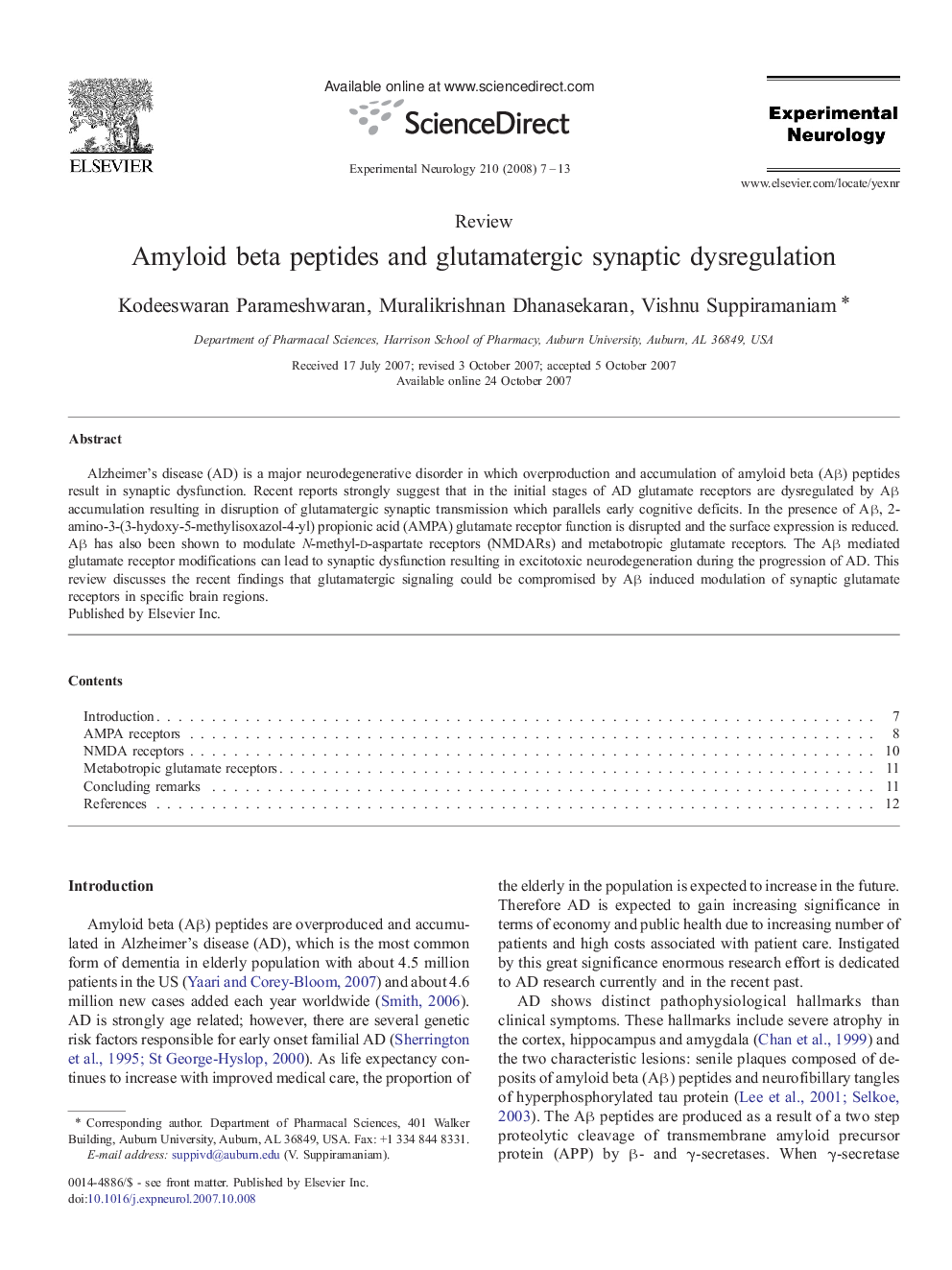| Article ID | Journal | Published Year | Pages | File Type |
|---|---|---|---|---|
| 3056809 | Experimental Neurology | 2008 | 7 Pages |
Alzheimer's disease (AD) is a major neurodegenerative disorder in which overproduction and accumulation of amyloid beta (Aβ) peptides result in synaptic dysfunction. Recent reports strongly suggest that in the initial stages of AD glutamate receptors are dysregulated by Aβ accumulation resulting in disruption of glutamatergic synaptic transmission which parallels early cognitive deficits. In the presence of Aβ, 2-amino-3-(3-hydoxy-5-methylisoxazol-4-yl) propionic acid (AMPA) glutamate receptor function is disrupted and the surface expression is reduced. Aβ has also been shown to modulate N-methyl-d-aspartate receptors (NMDARs) and metabotropic glutamate receptors. The Aβ mediated glutamate receptor modifications can lead to synaptic dysfunction resulting in excitotoxic neurodegeneration during the progression of AD. This review discusses the recent findings that glutamatergic signaling could be compromised by Aβ induced modulation of synaptic glutamate receptors in specific brain regions.
